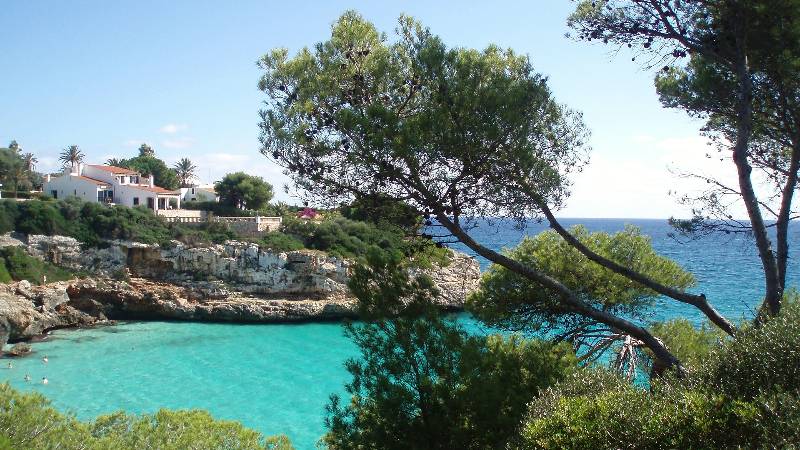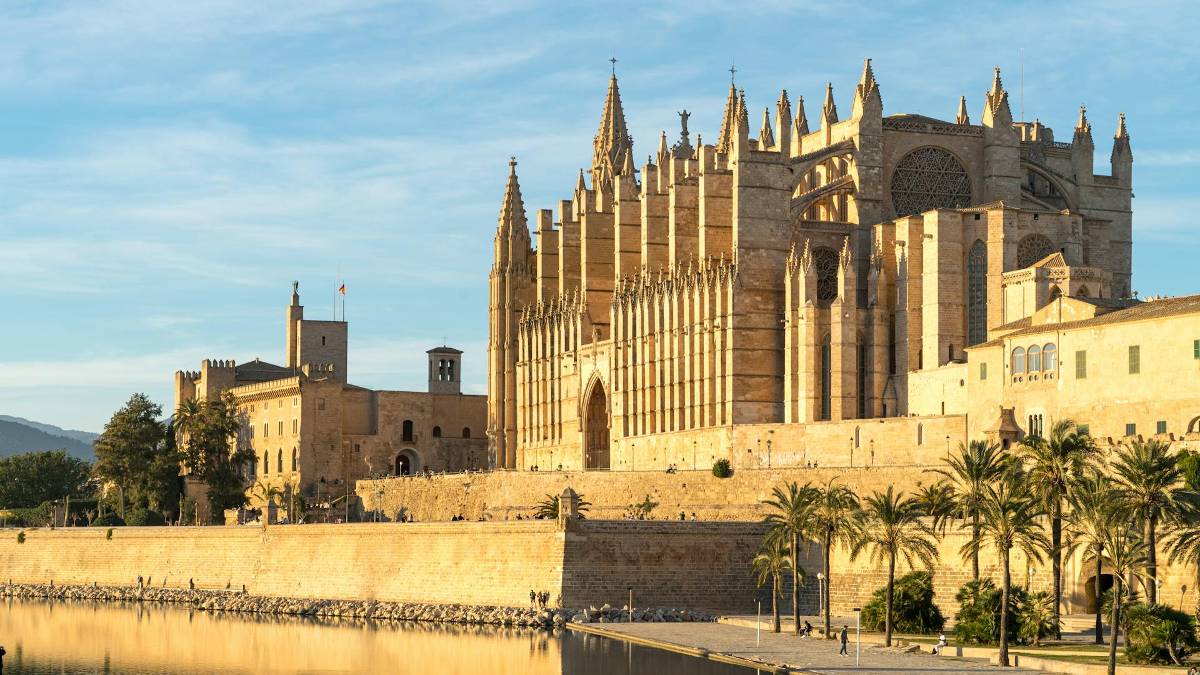Mallorca attracts entrepreneurs not only with picturesque landscapes and pleasant temperatures but also with potential tax advantages. The tax framework in Mallorca offers significant benefits to many entrepreneurs, employees, and executives.
In this article, we take a look at all relevant tax aspects for entrepreneurs and private individuals who are considering a business relocation or a move to Mallorca.
Content
- Taxes in Mallorca – Who is obligated to pay?
- How to file taxes in Mallorca
- Businesses in Mallorca – What taxes are relevant?
- Real estate in Mallorca – What taxes are incurred?
- Living in Mallorca and saving Taxes: Living the dream
Taxes in Mallorca – Who is obligated to pay?
In Mallorca, there are different types of taxes. Just like in the rest of Spain, all residents are subject to tax liability. A resident is defined as someone who spends more than 183 days a year in Mallorca or in Spain in general – by spending more than half a year there, the primary residence is established, and with it, the tax liability. However, non-residents may also have to pay taxes in Spain under certain circumstances: This applies when they have income generated on the island or in Spain.
The tax imposed on all income earned in Spain is called “Impuesto sobre la Renta de las Personas Físicas” (IRPF), which is equivalent to the income tax in the UK or US. Residents are typically required to declare their worldwide income. The tax rate in Spain is generally progressive, ranging from 19% to 47%, depending on the level of income. Specific tax rates apply to interest earnings and capital gains, which are tiered between 19% and 28%.
Additionally, investors can obtain the coveted Golden Visa by investing a minimum of €500,000, which comes with a residence and work permit.
Wealth tax and more in Mallorca
The tax exemption for wealth on Mallorca in 2024 is €3,000,000 per person. For the property used as a primary residence, an additional €300,000 can remain tax-free. Wealth tax for residents is usually levied on total domestic and foreign assets. In Mallorca, the tax rate on wealth is 3.45%, while in other regions of Spain, it is sometimes significantly lower.
Non-residents, on the other hand, only pay this tax on assets located in Spain. Among the taxes is also the value-added tax (IVA), which is levied on most goods and services at a standard rate of 21%.
Saving taxes as a foreigner in Mallorca: Lex Beckham
For foreign employees, entrepreneurs, and investors who wish to immigrate to Mallorca, the Lex Beckham is particularly attractive. This law allows qualified individuals to apply a fixed tax rate of 24% on their income earned in Spain, without their worldwide income being taxed in Spain.
The wealth tax in these cases is also only levied on assets located in Spain.

How to file taxes in Mallorca
Filing tax returns in Mallorca is done in a similar way as in the rest of Spain. Taxpayers can either submit their tax return themselves or use the services of a tax advisor. The corresponding form, Modelo 100, can be submitted online via the website of the Spanish tax authority, Agencia Tributaria. Alternatively, there is also an app through which the return can be submitted via mobile.
The tax authority also offers the option to schedule appointments by phone or in person at one of the local tax offices. Those who need assistance with filing and want to ensure they don’t miss out on any tax benefits should always seek professional tax and legal advice. At Global Tax Saving, you are guaranteed to be assisted by experienced advisors who can help you avoid errors due to language barriers or misinformation.
Deadlines for submission must be strictly adhered to, as penalties may otherwise apply. In 2024, taxpayers had until July 1, 2024, to submit the documents.
Businesses in Mallorca – What taxes are relevant?
Here are the key taxes relevant for businesses on the island:
1. Corporate Tax:
Companies pay corporate tax (Impuesto sobre Sociedades) on their profits. The general tax rate in Spain is 25%. For the first two years with profit, only 15% is charged. After that, companies with a net turnover of less than one million euros can benefit from a reduced rate of 23%.
2. Value Added Tax:
The standard VAT (Impuesto sobre el Valor Añadido, IVA) rate in Spain is 21%. It applies to almost all goods and services offered by businesses. In certain sectors, such as real estate, books, or certain food items, reduced rates of 10% or 4% may apply.
3. Business Activity Tax:
The Business Activity Tax (Impuesto sobre Actividades Económicas, IAE) is only applicable to companies that have generated more than one million euros in revenue for two consecutive years.
4. Payroll Tax and Social Security Contributions:
Employers in Mallorca are required to withhold payroll tax from their employees’ salaries. Additionally, they must contribute to social security, which amounts to around 30% of the employees’ gross salary.

Real estate in Mallorca – What taxes are incurred?
These taxes vary depending on the type of property and whether the buyer is a resident or non-resident. When purchasing a property in Mallorca, a series of taxes are immediately due
1. Property Transfer Tax:
When buying a second-hand property in Mallorca, the Property Transfer Tax applies (Impuesto sobre Transmisiones Patrimoniales, ITP). The rates are tiered as follows
- 8% on the first €400,000 of the purchase price
- Higher rates up to 11.5% for amounts above this threshold.
2. Value Added Tax:
When purchasing a new property, VAT (Impuesto sobre el Valor Añadido, IVA) is paid instead of the Property Transfer Tax. The rate is 10% for residential properties. For commercial properties or land, the VAT rate is 21%.
3. Stamp Duty:
Stamp Duty (Impuesto sobre Actos Jurídicos Documentados, AJD) is charged in addition to VAT and is up to 1.5% of the purchase price in Mallorca.
In addition to these, there are also annual recurring taxes on real estate, including:
1. Property Tax:
his tax is levied annually on the cadastral value of the property. The tax rate of the Property Tax (Impuesto sobre Bienes Inmuebles, IBI) varies by municipality and typically ranges between 0.4% and 1.1% for developed land.
2. Income Tax:
For non-residents who use their property for personal purposes, a notional rental income is taxed at a rate of 25% Income Tax (Impuesto sobre la Renta de las Personas Físicas, IRPF) on 1.1% of the cadastral value. If the property is rented out, 25% must be paid on the rental income, with various expenses such as mortgage interest and maintenance costs being deductible.
3. Wealth Tax:
Those who own property in Mallorca must pay the aforementioned Wealth Tax (Impuesto sobre el Patrimonio) of 3.45% if the value exceeds the tax-free allowance.

Living in Mallorca and saving Taxes: Living the dream
For entrepreneurs, Mallorca offers intriguing tax options. The Lex Beckham, in particular, provides many foreigners with attractive opportunities for tax optimization and can make starting anew on the island significantly more appealing.
Particularly important for your personal tax strategy is the choice of business structure. Different legal forms such as sole proprietorships, corporations, or partnerships are subject to different tax regulations in Spain. There are also regional differences, as tax rates and contributions can vary depending on the municipality or location. Last but not least, the choice of the appropriate visa also plays a significant role.
In all these areas, our experts at Global Tax Saving can identify the most advantageous option for you and take care of the bureaucratic process on your behalf.
Don’t want to spend time delving into the tax complexities of Mallorca or battling through forms for your move to the island? Contact us for professional support and a no-obligation consultation.



